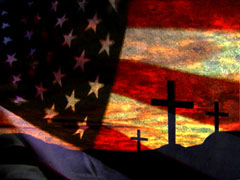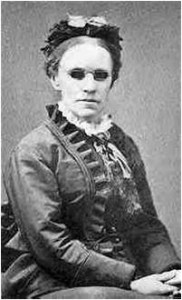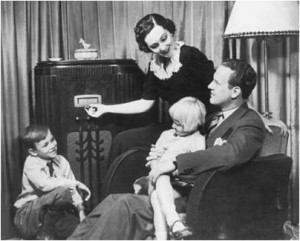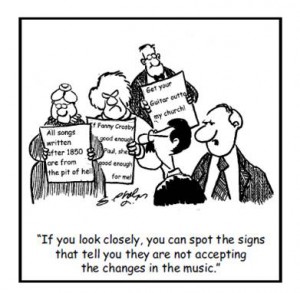 In our last blog we covered a historic overview of Christian music through the ages and ended with that music making a journey to America. We learned that as Isaac Watt’s music began to spread around England many Christians utterly rejected it. Some churches split down the middle over Isaac Watt’s hymns. By now his hymns had spread to America as well. It’s hard to keep a good tune from spreading. Newton’s and Wesley’s hymns spread to America, too. The Methodist church in England may have banned Wesley’s hymns from being sung in church, but they were sung in American churches.
In our last blog we covered a historic overview of Christian music through the ages and ended with that music making a journey to America. We learned that as Isaac Watt’s music began to spread around England many Christians utterly rejected it. Some churches split down the middle over Isaac Watt’s hymns. By now his hymns had spread to America as well. It’s hard to keep a good tune from spreading. Newton’s and Wesley’s hymns spread to America, too. The Methodist church in England may have banned Wesley’s hymns from being sung in church, but they were sung in American churches.
Watts, the Wesleys, and Newton’s hymns reflected the era they lived in. It portrayed a magnificent, saving God and at the same time gave glimpses of what people were experiencing at the time. Some loved this; some hated this! Americans seemed to embrace it. After all, it was a new country with new ideas.
About a century after Watts, Wesley and Newton, Civil War broke out in America. During the Civil War our country went through a devastating economic downturn. People were roaming the streets in poverty. Churches began opening their doors for people to come in and pray all the time. And there was an enormous spiritual revival in America. That period of time was called the “Open Door Revival.” And with the revival came a different kind of music. There was greater emphasis on Jesus being our friend.
 Here is where the songs of people like Fanny Crosby emerged. Her music reflected the individual conversion experience. Fanny was blind and just one of many who wrote hymns, but she might have been the most prolific. She wrote about 8000 songs under at least 200 pen names. Here are two you might recognize: Blessed Assurance and To God Be the Glory.
Here is where the songs of people like Fanny Crosby emerged. Her music reflected the individual conversion experience. Fanny was blind and just one of many who wrote hymns, but she might have been the most prolific. She wrote about 8000 songs under at least 200 pen names. Here are two you might recognize: Blessed Assurance and To God Be the Glory.
However there were people who rejected this music and its content. They called them human hymns and people would walk out of church angrily shouting “human hymns,” “human hymns” in the midst of the music.
When the Roaring Twenties came a new generation wanted to sing the gospel in an up-to-date way. Young musicians were encouraged to write choruses instead of  standard church songs – short, bouncy melodies that could be sung over the radio and picked up by listeners after they heard it once or twice – something people would hum all through the week. You know, like the advertisement jingles on the radio. And there were simple children’s songs too like Give Me Oil in My Lamp.
standard church songs – short, bouncy melodies that could be sung over the radio and picked up by listeners after they heard it once or twice – something people would hum all through the week. You know, like the advertisement jingles on the radio. And there were simple children’s songs too like Give Me Oil in My Lamp.
In the Deep South we had soulful spirituals that had risen from the slave culture plus other songs with a jazz flavor from New Orleans – music with a beat that quartets would sing at storefront churches and in locations where people were poor. This so- called gospel music could help them escape their miseries and find a bit of joy. It grew and soon it spread into Saturday night “sings” held in theaters and auditoriums – and eventually into churches as part of praise and worship.
 Staunch Christians did not like this music one bit and made it known. But there it was and there was no stopping it.
Staunch Christians did not like this music one bit and made it known. But there it was and there was no stopping it.
Christian worship music controversies have continued. Today’s present contemporary style of church music has been growing for the past thirty years or more. Although to some it seems more like an explosion than a growth. The reason it seems like an explosion is that today we don’t have to wait for fifty years for a song to catch on because of our technology. A song can be written in an hour and travel worldwide in an instant through the airwaves. By tomorrow it will be on an album and in a Christian music store in your neighborhood.
As society changed through the years, so did music. In biblical times they didn’t have music in elevators, department stores, and waiting rooms. They didn’t have radio, television, live theater, rock concerts, and iPods. But today we do. Because of this exposure we have all developed very definite ideas about what we like and don’t like in music. Some of us like fast, some like slow. Some like country, some like opera. Some like jazz, some like rap. We know what we like. It’s only natural that our preferences would spill over into a church setting.
Actually there is nothing wrong with having music preferences, but problems occur when we think our preferences are God’s preferences. Because even though we might not admit it, most of us think God likes what we like and dislikes what we dislike. This kind of thinking can affect our corporate worship – a subject we’ll explore next time.

